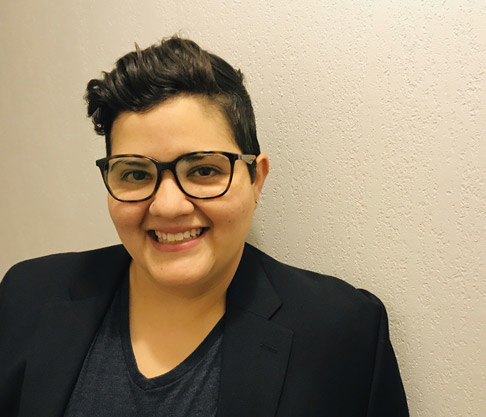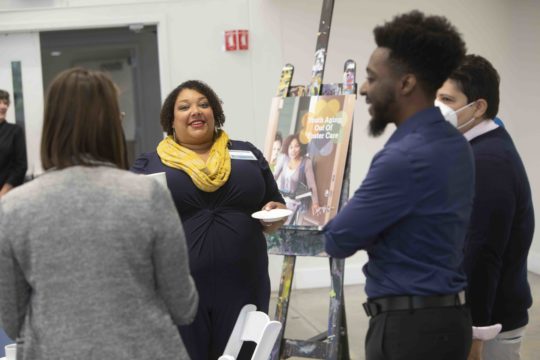Spotlight on Hope 2022
Presented by Liberty Mutual Insurance
We hope everyone enjoyed the morning and look forward to seeing you at another event!
Making Post Secondary Success a Reality For Youth Experiencing Foster Care
Many of us who found success after high school were probably “born and bred into a college-going culture,” as Maddy Day referenced on our panel. Yet for youth experiencing foster care, the system is designed to keep them safe, not to ensure their educational success. Our panelists are striving to change that every day. We know more is required – more strategizing, more allies, more opportunities to ensure these youth and young adults are “at risk for success” (a phrase our panelists coined) – and we hope you will join us.
We’d like to extend our sincere gratitude to our panelists for sharing their expertise, knowledge, and passion for leveling the playing field for youth experiencing foster care. You can find more information about each of them further below.
You can also reach out to Julie Segovia, HopeWell’s Vice President, Research, Policy, and Learning, to continue the conversation.
Photos
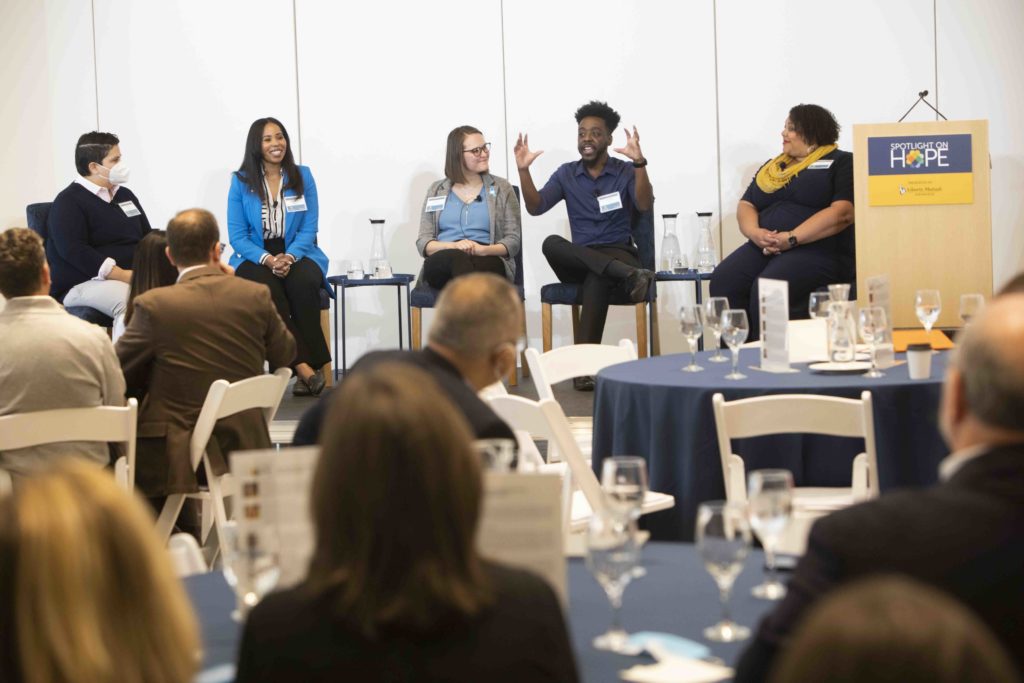
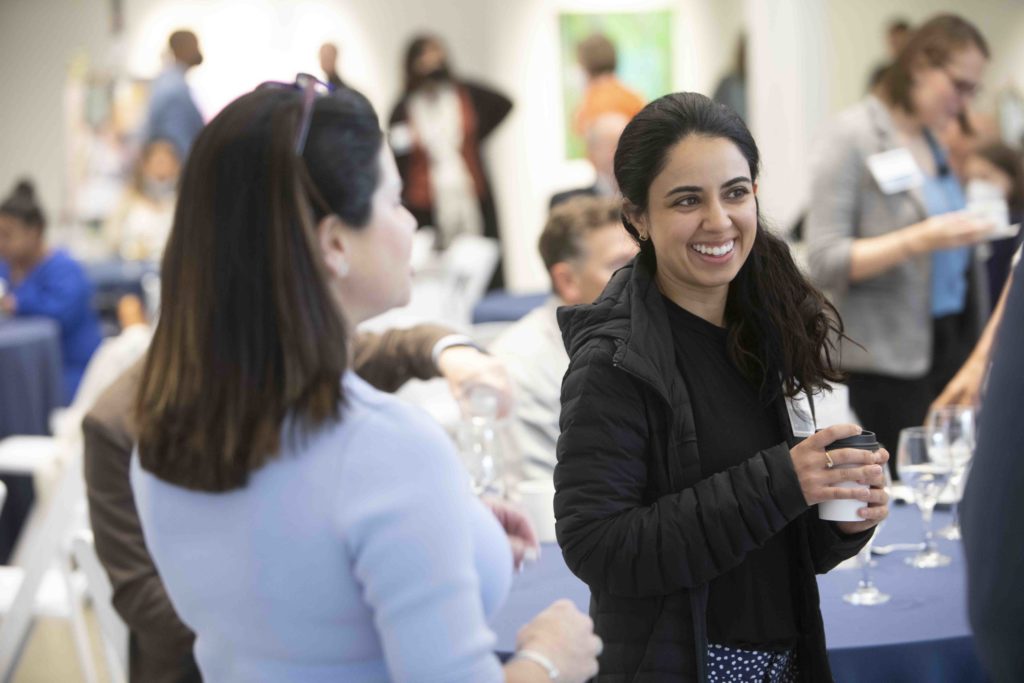
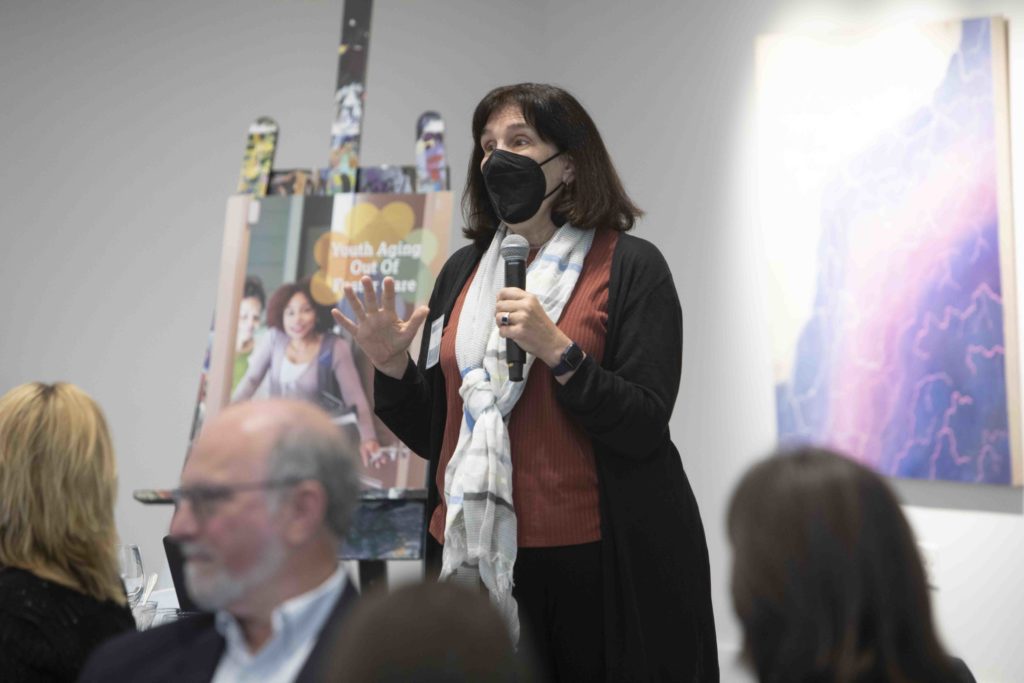
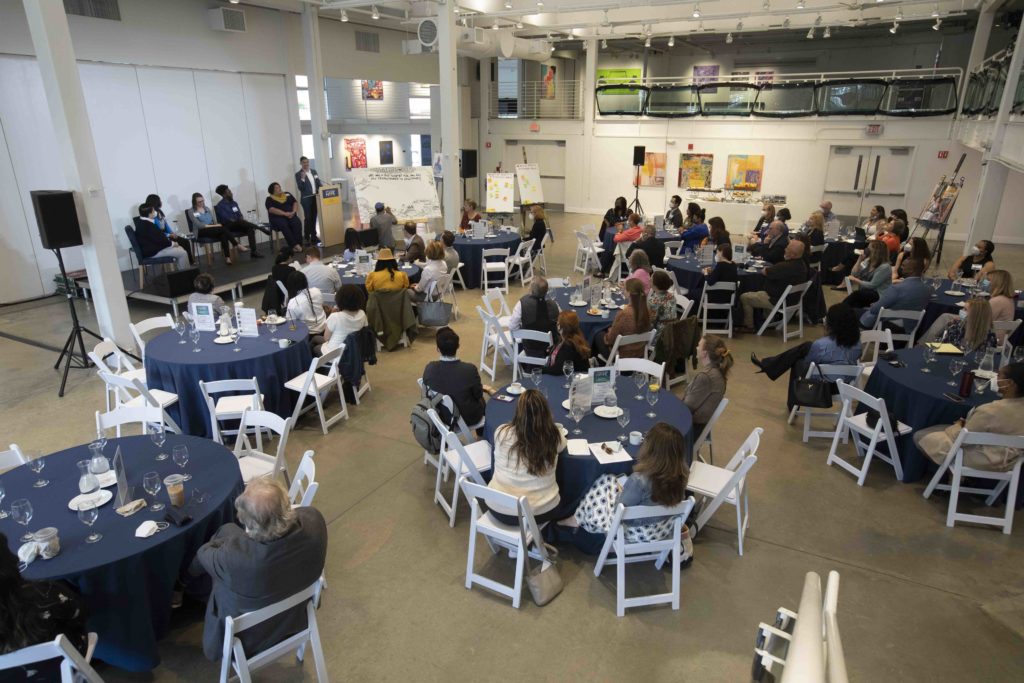
Featured Panelist
Maddy Day
Maddy Day, MSW (she/her) is the Proprietor and Senior Consultant with Maddy Day LLC & Associates. A child welfare and education expert, Day consults with nonprofit organizations, institutional philanthropists, and state agencies focused on improving the lives of young adults who have experience in foster care, homelessness, and those who are first generation, low-income college students, and students of color. Day is a Results Count Advanced Practitioner and applies a race equity lens to all of her work. From 2012-2018, Day directed the Fostering Success Michigan statewide initiative at Western Michigan University. In 2010, she co-founded the University of Washington Champions Program. Day believes that all students have the right to equitable resources and support to help them reach their education goals.
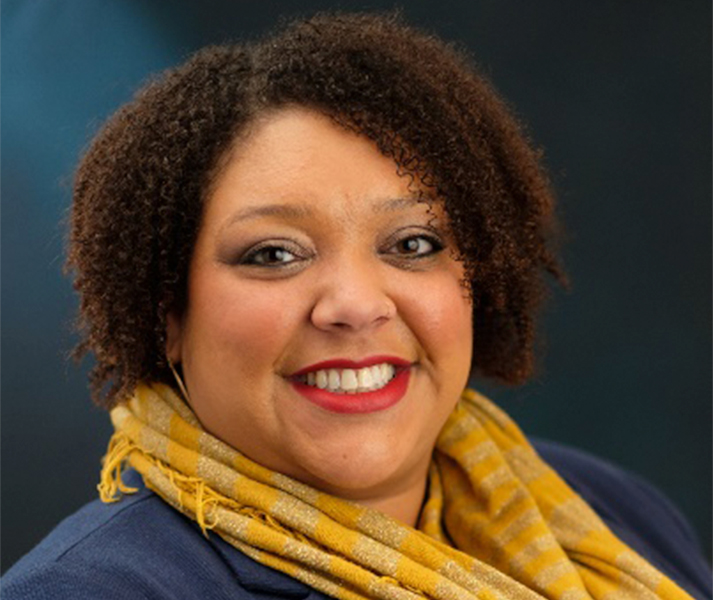
Featured Panelist
Angela Hoffmann-Cooper
Angela Hoffman-Cooper (she/her) is the Senior Director of Marketing Communication at Northland College and an adjunct instructor in psychology, sociology, and human-centered design thinking. She is also a Ph.D. Candidate in Colorado State University’s Higher Education Leadership Program. Her work is focused on supporting postsecondary students who have recently transitioned out of the foster care system in attaining their educational and degree goals. She's written extensively on the role of practitioners in addressing the challenges students with experience in foster care face on college campuses and the importance of engaging in student/youth-centered research and practice. She previously served as a Fostering Success Campus Coach at the University of Michigan's Blavin Scholars Program. Along with colleagues, she developed The Foster Scholars (TheFosterScholars.org), a community of scholars with lived experience in foster care committed to transforming the narrative and outcomes for college-going foster youth through practice, research, and advocacy.
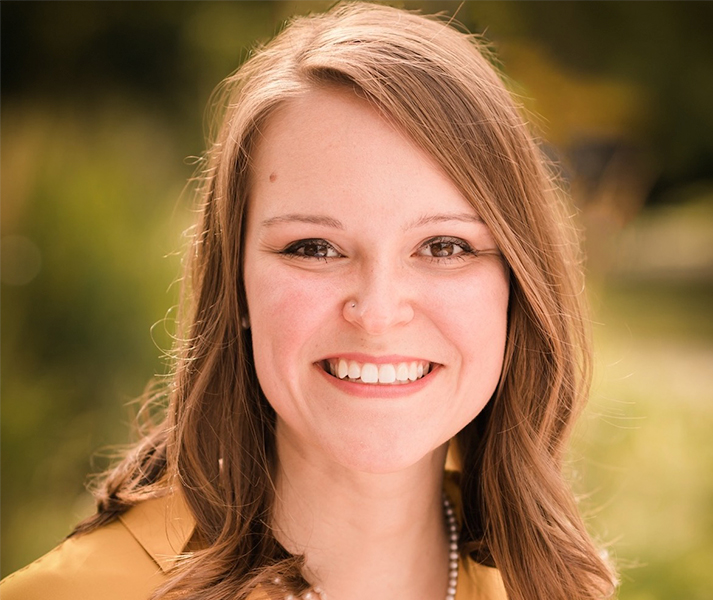
Featured Panelist
Nathan Ross
Nathan Ross (he/him) is a therapist and national child welfare consultant who uses his personal, educational, and professional experiences to improve the foster care system throughout North America. Nathan entered foster care when he was ten, and he was adopted as a teenager. Upon discovering that his foster care experience was unique, he decided to center his career around increasing outcomes for future generations of children impacted by the foster care system. Over the last decade, Nathan has worked with young people to craft their stories and use their experiences to affect system changes. He also developed a no-eject transition program for young adults aging out of foster care staffed by adults with lived experience. Today, Nathan consults with child welfare agencies, organizations, and states to identify and develop programs and policies that focus on authentically engaging youth, placing them at the center of decision making, and recognizing their inherent strengths.
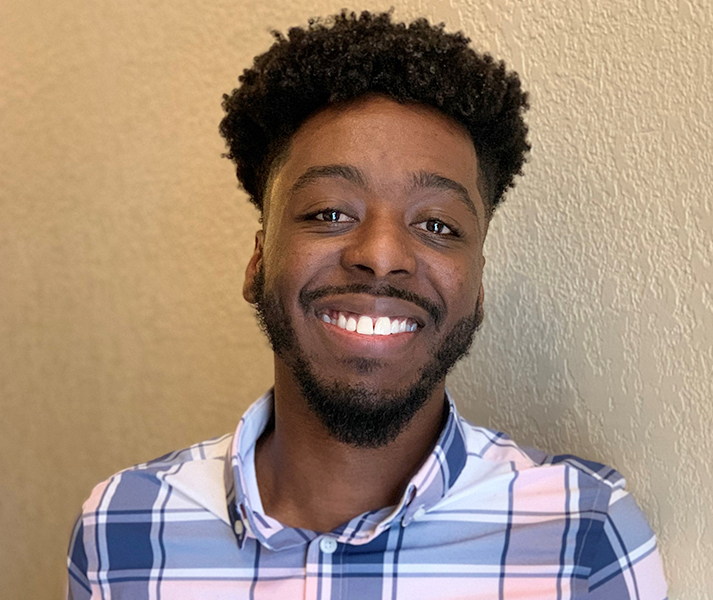
Featured Panelist
Lyndsey Collins Wilson
Lyndsey C. Wilson, MA (she/her) is the Chief Executive Officer of First Star, Inc., a national organization that partners with universities and child welfare agencies to invest long-term in high school-aged youth in foster care to support academic achievement and self-sufficiency. Lyndsey began her career with Teach For America (TFA) as a science educator in Atlanta, GA, and later transitioned to school administration as a middle school principal in Southern California. Lyndsey's 15 years in education have resulted in frequent media requests to comment on the child welfare system and education. Time Magazine, ABC Nightline News, and NBC are a few outlets that have sought out Lyndsey's expertise. Her education and leadership work includes travel to Bosnia, Mexico, Dominican Republic, and South Africa. In addition, to TFA, Lyndsey's professional and community affiliations include Spelman College, Foster Youth Education Fund, Accrediting Commission for Schools - Western Association of Schools and Colleges, Leadership for Educational Equity, Foster Boy Film, Los Angeles County's Education Coordinating Committee, and KL Strategic Consulting. Lyndsey lives in Southern California with her husband, Keith, and their mini-husky, Daz.
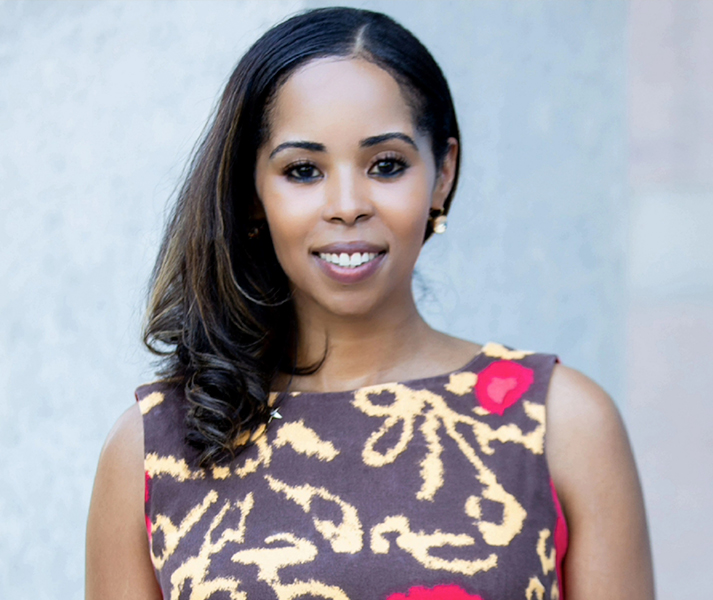
Moderator
Julie Segovia
Julie Segovia (she/her) is HopeWell's Vice President, Research, Policy, and Learning. Julie is a PhD candidate in Child Study & Human Development at Tufts University and has lived experience in the Massachusetts foster care system, including aging out of care. Her professional interests include the social, emotional, and academic development of foster care-involved children and youth and issues of social justice in the child welfare system. Julie has experienced firsthand many of the foster care-specific barriers to post-secondary education, and cares deeply about removing those barriers through innovative and equitable policy and practice changes. She strongly believes that people with lived foster care experience should be meaningfully involved in all child welfare decision-making processes at the organizational, county, state, and federal levels.
